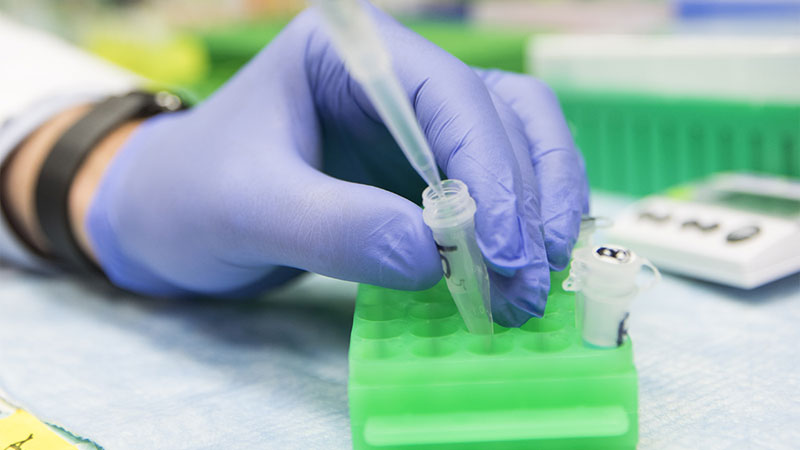
Ph.D. in Regenerative Bioscience
Pioneering Excellence Every Step of the Way
Introducing an innovative Ph.D. program in regenerative bioscience at the University of Georgia, offered through the Department of Animal and Dairy Sciences in UGA’s College of Agricultural and Environmental Sciences (CAES) in collaboration with the RBC.
Launched in the Spring of 2024, the program provides advanced interdisciplinary training opportunities for students in biomanufacturing cellular therapies and tissues, biomaterials for tissue engineering, gene therapy, biomedical imaging, and biomedical computation.
“The curriculum for the regenerative bioscience Ph.D. program has a strong composition of courses that will provide the technical skills needed to be a successful scientist.”
– Francis Milward, head of Global Innovation at Boehringer Ingelheim Animal Health

Student Success Hub
The primary goals of the RB doctoral program are to inspire and educate the next generation of highly qualified regenerative bioscience innovators and to support their transition to rewarding careers in biomedical research and technology that span both animal and human health.
The RB Ph.D. program is aimed at addressing the evolving need for trained specialists in regenerative bioscience, an emerging area of growth in the state of Georgia, nationally, and globally.
Designed to introduce graduate students to the latest curriculum and provide them with ample opportunities for skill development, critical thinking, experiential learning, and networking with regional, national, and global partners.
Students will have access to the RBC ,which collaborates with renowned centers and programs, connecting students to broader communities in order to promote collaboration and remove barriers to student success.
Endless Career Paths

Biotechnology Research Scientist
Work for biotech companies on projects related to tissue engineering, gene therapy, and regenerative medicine.
Academic Researcher/Professor
Teach at universities and conduct research in regenerative bioscience.
Biomedical Engineer/Product Manager
Develop medical devices and technologies for regenerative medicine applications.
Entrepreneur/Biotech Startup Founder
Launch your own regenerative medicine company.
Government/Regulatory Agency Positions
Work with agencies like the FDA or CDC in regulatory, policy, or research roles.
Geneticists/Clinical Genetic Counselor
Assist patients and healthcare providers in understanding and managing genetic conditions.

Learning by doing
- As a student, you will demonstrate knowledge in genetics, cell biology, anatomy and physiology, and immunology in healthy and diseased states.
- You will learn to understand molecular and cellular mechanisms that underlie disease and the limitations of current treatment strategies.
- You will understand current and emerging technologies supporting regenerative medicine research including stem cell therapies, biomaterials/tissue engineering, cell engineering, biomanufacturing, gene therapies, and novel devices and diagnostics.
- You will gain critical laboratory skills such as cell culture, gene delivery and editing, and develop analytical techniques such as qPCR, ELISA, immunocytochemistry, flow cytometry, and statistical analysis.
- You will learn to apply critical thinking skills to solve complex research problems focused on promoting tissue repair and regeneration following injury or disease using hypothesis-driven research.
- Learn to demonstrate highly proficient scientific literacy and communication (interpersonal, verbal, and written) skills.
- You will be equipped with the necessary knowledge and skills to embark on a successful career as a scientific investigator in regenerative bioscience or related fields.
- You will have the opportunity to create an individual development plan (IDP), which will be tailored to facilitate professional development that is suited to your skills, interests, and goals.
Samantha Spellicy (top left), current Neurosurgery Resident at Duke University Hospital. She earned dual degrees (M.D./PhD) while working in the Stice lab. Read more: Sam’s PhD journey
UGA to offer state’s first Ph.D. in regenerative bioscience

Have questions?
Contact our PhD program leaders for more information.


